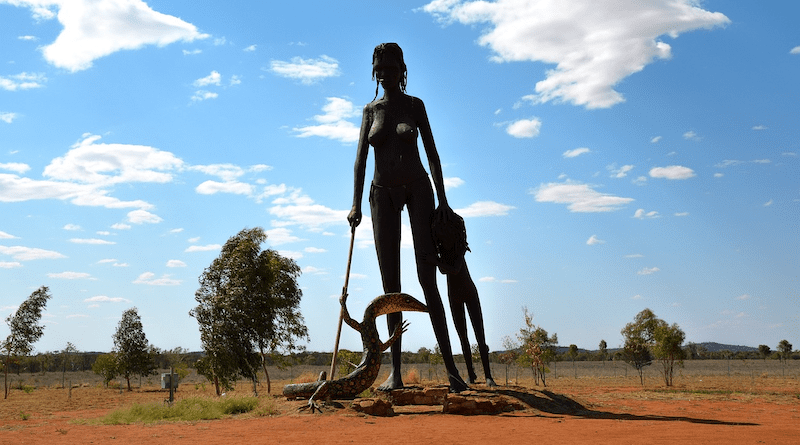Albanese Is Setting Back The Cause Of Indigenous Australians – OpEd
With the early voting now open for “The Voice” referendum, the nation is greatly divided. The campaign for “Yes” and “No” has degenerated into a ‘no holds barred’ wrestling match, where the winner will take all.
The formal vote for the referendum is set for 14th October, which to be passed requires a majority of Australian voters, in a majority of states. The campaign has been going on informally, since Labor came to power in May last year. It has become the hallmark of prime minister Anthony Albanese, who has tired his fate to the outcome. A win in the referendum would bolster Albanese’s status within the party and left leaning Australia, while a loss may begin his slide into illegitimacy, having failed for what he claimed was mandated to do.
Strategically, Albanese tied himself to the outcome, holding this referendum stand alone from elections before his mid-term. Holding the referendum on the same day as a general election would have been less critical to his legitimacy, and saved the nation a heap of money in holding the referendum simultaneously on the same day. A practical solution, without going through all the trauma of the current campaign, would have been to legislate for “The Voice” and trial the concept before making the mammoth step to incorporating “The Voice” into the political system for perpetuality.
Albanese has made a massive mistake here. If “The Voice” question is rejected, it can never be brought up again. Legislating for “The Voice” wouldn’t have attracted the controversy the campaign is attracting, if it was done during Labor’s ‘honeymoon’ period, last year.
The whole concept of “The Voice” because of bad political strategy will have been lost and thrown onto the junk heap, just like the republic referendum did to any hopes of Australia becoming a republic in the foreseeable future.
The cost of the campaign has been to drive a wedge between Australians. Think back to the BLM months, when supporters said all whites were privileged and all blacks are victims of systemic racism. “The Voice” debate has created this sort of environment; many magnitudes in size. How long this scarring will take to heal is an unknown.
Many honest “fair go” thinking Australians are being put off by the shenanigans of campaigners who have brought identity and race into the Australian social equation. There is a sad risk the collateral damage might be citizens closing their ears when the subject of indigenous people ever comes up in discussion. What will be remembered will be the exposure of corruption in the defunct ATTSIC organization, wastage of funds going to native Australians, and the behaviour of the “Latte Brigade” during the campaign.
The losers will be the vulnerable and disenfranchised indigenous Australians, living outside of the cities, who were never involved in this process from the get-go. After “The Voice” referendum there will still be poverty, still be crime, still be violence, still be oppression, just like it has been for generations.
“The Voice” was never about these people, as they have been drowned out by the urban activists looking for a cause. The real victims are the people, this referendum should have been about.
The spin-off of this referendum process has been the generation of anger, hate, abuse, and a rekindling of racist narrative, which had nearly disappeared from Australian society in the decades-long multiculturalism experiment.
What if the referendum gets up? To answer that, we can only look at comparative countries that have enshrined race into their constitutions. Malaysia comes up as a good example. The Malaysian Constitution grants a “Special position” to the Malays. This ‘special position’ has been interpreted and enhanced to create a doctrine of Malay supremacy in the country. Malays today are given special discounts on real estate (not means tested), are eligible to invest in high yielding sovereign funds, get almost all the positions within the civil service, and are given special quotas to enter universities. The Malaysian government sort equity, where there would be an equality of outcomes.
In reality, these policies created a neo-feudal society, where elites rule the country and take the spoils through hyper-corruption that is institutionalized. One must remember these outcomes were not the motive and aspiration of those who framed the constitutional amendments. This situation just evolved.
This is the nature of entropy, and something that is not intended will also happen when a constitution divides the citizenry up by race. This could become a neo-apartheid social system in the future, particularly when those identifying as indigenous Australians is growing exponentially.
This could be the brave new world Australia is looking at, while the nations’ indigenous Australians are still left to live in depravity. There could be a better way to do this.

